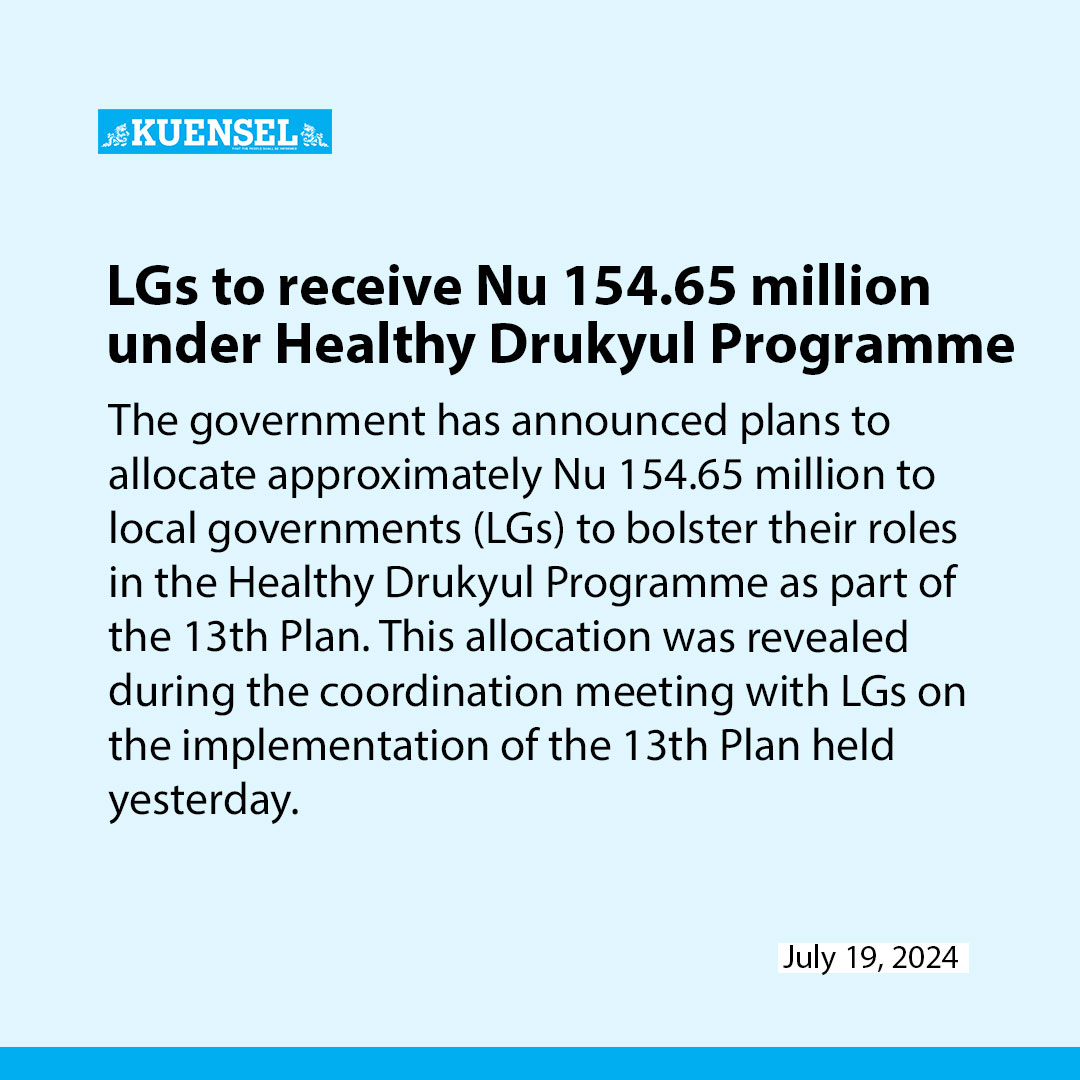Jigmi Wangdi
The government has announced plans to allocate approximately Nu 154.65 million to local governments (LGs) to bolster their roles in the Healthy Drukyul Programme as part of the 13th Plan.
This allocation was revealed during the coordination meeting with LGs on the implementation of the 13th Plan held yesterday.
Officials from the Ministry of Health (MoH) and National Medical Services (NMS) outlined key areas where the government and LGs can collaborate.
The Department of Public Health under the MoH has developed a range of activities to be implemented at the community level with LG support.
Major initiatives include enhancing health promotion through risk communication and community engagement, systematic screening and management of priority public health diseases (HIV, STIs, TB, and cervical cancer), controlling vector-borne diseases, and strengthening surveillance and outbreak response for priority health concerns.
The programme also focuses on evidence-based interventions to reduce non-communicable disease risk factors, providing appropriate disease management, and accelerating mother and child health programmes.
LGs will play a crucial role in raising awareness about diseases and public health, conducting sensitisation programmes, and involving local leaders in public health activities and disease surveillance.
The Department of Health Services under the MoH aims to ensure access to traditional medicinal resources (medicinal herbs), promote health and well-being services through stakeholder engagement, streamline local and spiritual healing practices, and strengthen quality assurance of health services at the LG level.
Health officials said that effective implementation will require support from the dzongkhag agriculture and forestry sectors to cultivate rare and endangered medicinal herbs, ensuring the sustainable management of traditional medicine resources.
Thromde and gewog administrations, along with LG health sectors, will also need to support awareness and advocacy efforts, ensuring the safety of local healing practices.
The Department of Clinical Services under the NMS presented its planned activities, which include enhancing healthcare coverage through local and international outreach health camps, improving access to specialised healthcare services, and leveraging ICT-enabled solutions to strengthen health systems.
The role of LGs will be to support health workers in organising outreach clinics, engaging communities, and promoting digital health literacy.
NMS officials also highlighted major services planned for the 13th Plan, such as kidney transplants, the establishment of a fertility clinic, a mobile medical unit, and plastic and reconstructive surgery.


